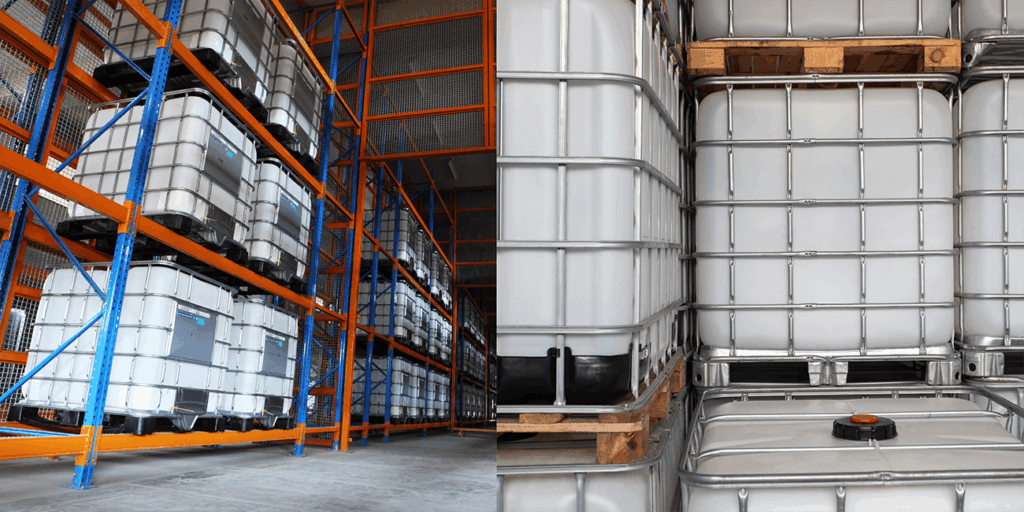IBC stands for Intermediate Bulk Container. These are also known as IBC totes, IBC tanks, or pallet tanks.
Intermediate Bulk Containers, commonly known as IBCs, are essential equipment for many industries. Whether you’re transporting chemicals, storing liquids, or handling raw materials, IBCs provide a practical and efficient solution.
But what exactly are they, how much can they hold, and what happens when they reach the end of their life?
At National Recycling, we specialise in the responsible collection and recycling of IBCs for businesses across the UK. Here’s everything you need to know.
What Is An IBC Container?
An IBC container is designed to hold substantial volumes of liquid or flowable solids while remaining easy to handle and stack. Most IBCs feature:
- A rigid outer cage, often made from steel or aluminium
- An inner plastic bottle, typically made from high-density polyethylene (HDPE)
- A pallet base for compatibility with forklifts or pallet jacks
IBCs are valued for their durability, reusability, and space efficiency, making them ideal for both short-term transport and long-term storage. There are also flexible IBCs (FIBCs) made from woven materials, mainly used for dry goods.
How Much Does An IBC Hold?
A standard IBC container typically holds 1,000 litres (or 275 gallons). However, they can range from around 500 litres up to 1,250 litres, depending on the design and manufacturer.
The standard size of a 1,000-litre IBC is:
- Length: 1,200 mm
- Width: 1,000 mm
- Height: 1,160 mm
Their cube-shaped design makes them more space-efficient than traditional barrels or drums, especially when transporting or storing large volumes of material.
How Do You Dispose Of IBCs?
While IBCs are designed to be reusable, they eventually require cleaning, decontamination, or complete disposal—especially if they’ve been used to store hazardous substances.
At National Recycling, we provide professional disposal and recycling services for IBCs. We specifically collect waste from businesses, including contaminated containers, chemicals, WEEE, metals and various other waste types. We understand the compliance requirements around hazardous and industrial waste, and we ensure that your IBCs are processed in line with UK environmental legislation.
If your business uses IBCs, proper end-of-life handling is essential for compliance, sustainability, and safety. National Recycling offers tailored waste solutions to meet the needs of UK businesses across sectors.



